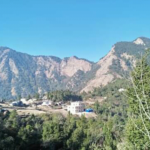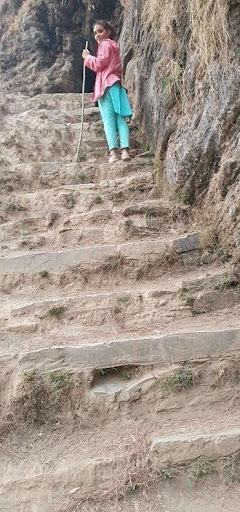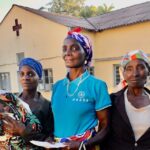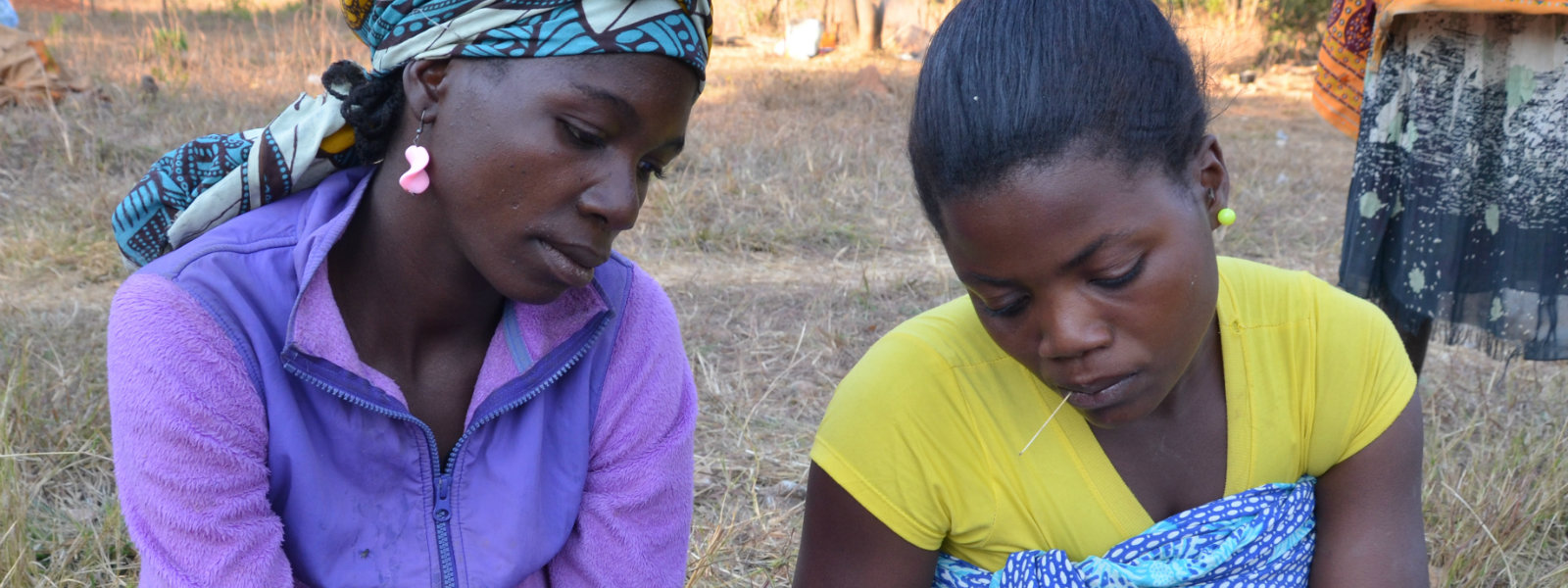Prevention Stories of Hope
Far-Reaching Hope
 Sigas rural municipality is a beautiful area in the Far-West Province in Nepal. It consists of many little villages spread out in the hills. To reach Sigas one has to take a bus for five hours and walk another six hours. There are no streets in that area and therefore no vehicles. Most villages are built on the hillside and to reach the next village one must walk downhill to the river, cross the river, and walk all the way up again. The people living in Sigas have to walk to school, to go shopping, to find food for their livestock, and to get medical treatment.
Sigas rural municipality is a beautiful area in the Far-West Province in Nepal. It consists of many little villages spread out in the hills. To reach Sigas one has to take a bus for five hours and walk another six hours. There are no streets in that area and therefore no vehicles. Most villages are built on the hillside and to reach the next village one must walk downhill to the river, cross the river, and walk all the way up again. The people living in Sigas have to walk to school, to go shopping, to find food for their livestock, and to get medical treatment.
Because of the distance to schools and a lot of farm work, not all children have the possibility to go to school. Most of the people are sustenance farmers with barely enough crops to survive, and the main source of income is from labor in India. The poor level of education and financial problems lead to poor health in the community, which especially affects women.
Until 2024, hardly any NGO had ever gone to Sigas rural municipality. The fistula outreach programs carried out by our partner, the INF Surkhet Fistula Centre, in April 2024 were a big highlight.
 Fistula outreach worker Madha Bandhari reached all nine wards in Sigas. To do so, Madha needed a guide for safety as well as to find the right paths in the jungle. There are hardly any hotels or restaurants in Sigas, and she was usually invited by village people to stay in their homes.
Fistula outreach worker Madha Bandhari reached all nine wards in Sigas. To do so, Madha needed a guide for safety as well as to find the right paths in the jungle. There are hardly any hotels or restaurants in Sigas, and she was usually invited by village people to stay in their homes.
Madha facilitated different events on obstetric fistula, its causes, symptoms, prevention, and treatment. She held events for the female community health volunteers (FCHV), community groups, health workers, and mothers’ groups.
In two places where Madha conducted outreach events, FCHVs approached her and shared about fistula patients they knew in their work areas. With Madha’s help, the concerned FCHVs coordinated the patients’ travel to the Surkhet Fistula Centre.
Officials, local stakeholders, Health Workers, FCHVs and community people were tremendously grateful for INF Surkhet’s effort to bring fistula information and health education to this very remote area of Sigas.
Votoka (“Rise Up”) Team
 The Votoka (“Rise Up”) team in Angola trains nurses in obstetric fistula and conducts awareness lectures in communities. In 2024, the team trained over 500 health providers in awareness of obstetric fistula: what it is, its causes and consequences and how to prevent it, and how to identify and refer patients for treatment. Two of these training sessions were held at the Government Nursing School “Instituto Médio de Saúde” in Bie. The first session educated government nurses undertaking midwifery specialization training. The second trained nurses in the final year of their three-year course. In Benguela, the Votoka team undertook the monumental task of providing nurse training in all ten municipalities, with our international partner Petra driving nearly 3000 km to give the training in each location!
The Votoka (“Rise Up”) team in Angola trains nurses in obstetric fistula and conducts awareness lectures in communities. In 2024, the team trained over 500 health providers in awareness of obstetric fistula: what it is, its causes and consequences and how to prevent it, and how to identify and refer patients for treatment. Two of these training sessions were held at the Government Nursing School “Instituto Médio de Saúde” in Bie. The first session educated government nurses undertaking midwifery specialization training. The second trained nurses in the final year of their three-year course. In Benguela, the Votoka team undertook the monumental task of providing nurse training in all ten municipalities, with our international partner Petra driving nearly 3000 km to give the training in each location!
In addition to formalized health technician training, the team continued with community-level awareness lectures. Lectures are held in marketplaces, churches, health posts and villages. In total they spread awareness about obstetric fistula to more than 6600 people in 2024 – more if they count all the police officers they educate at traffic stops! Whenever they travel to a village where there is a potential fistula patient, they take the opportunity to educate the village.
Waiting in Hope
 The Kalukembe Hospital in Kalukembe, Angola, is an especially precious and important partner site. This area of Angola is very rural, and Drs. Priscilla and Daniel Cummings have described it as a “survival site.”
The Kalukembe Hospital in Kalukembe, Angola, is an especially precious and important partner site. This area of Angola is very rural, and Drs. Priscilla and Daniel Cummings have described it as a “survival site.”
Kalukembe Hospital lacks the resources of some of the hospitals in more populous areas of Angola, but the work done there is crucial to the surrounding community. Women like Delinda, pictured far left, seek maternal health services at Kalukembe. She would likely have had nowhere else to turn if the hospital were not there. Delinda needed an assisted birth to safely deliver her baby and was given the opportunity to wait for a month before her due date in the Casa de Esperança (“Waiting Home”) so that she would be right nearby when her time came, rather than beginning her labor far away and risk delivering in transit. She received funds to cover the costs of her care through our Maternal Health Fund, for which she is most grateful.
Our incredibly generous HFOS Community of Hope supports the work of our medical/outreach partners in vital sites like Kalukembe, Angola, and protects the lives of women like Delinda and her precious baby as they access maternal care free of cost.

